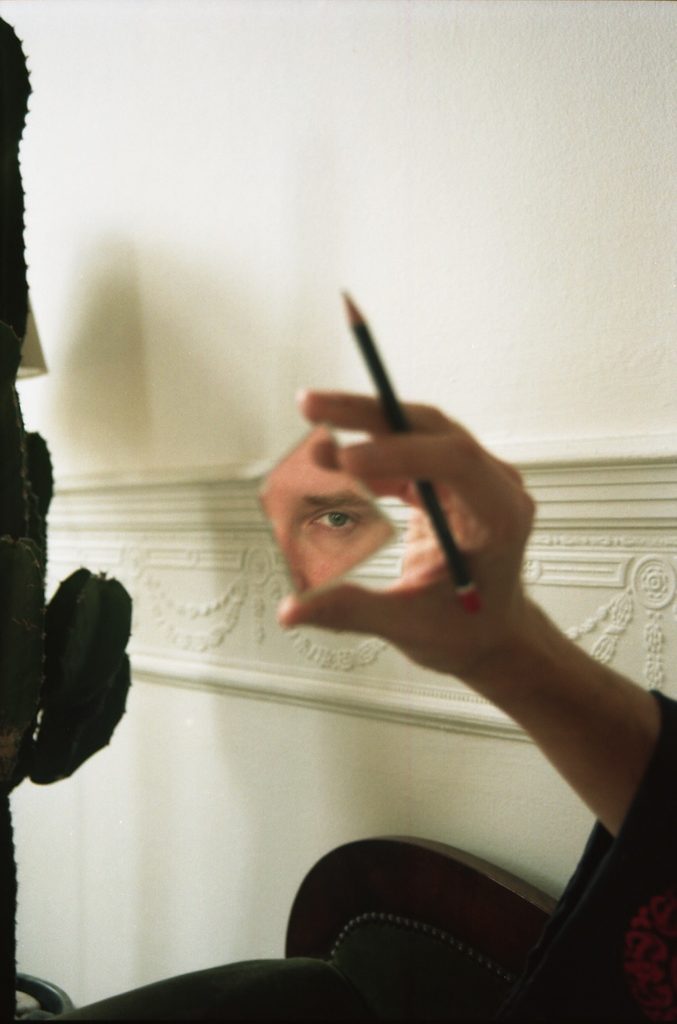The title of Artem Mozgovoy’s first novel, Spring in Siberia, prompts the obvious question: what is it like? The 38-year-old writer and journalist responds evocatively. “It’s about something long awaited but also something almost revolutionary in its force, and yet something beautiful and tender.”
A catchy summary of the novel, published in April by Red Hen Press, might say the book is about growing up gay in Siberia. But Mozgovoy finds such a description reductive. “I would rather describe it as a family story that happens during the gradual painful collapse of Communist Russia and the emergence of the capitalist world,” he explains over coffee in Brussels, his new home. “It is set in a provincial town and seen through the eyes of a boy who eventually, by the end of the book, experiences his first love and comes out as gay.”
Siberia has long been a byword for the worst sort of exile and incarceration. Settlements were created as concentration camps or places for industrial exploitation and mining partially supported by forced labour. Mozgovoy agrees the reputation is well warranted. “These are not beautiful places. Even the local nature is not enjoyable. My city was surrounded by a vast and unfriendly forest. Not a place for a pleasant hike.”
The weather and both the urban and natural environments make life arduous in the best of circumstances. “As the Soviet Union collapsed everything had to be re-thought, re-invented, and that process which in a way never ended, was never finalized, was very troubled and painful, full of violence and crime. The oligarchs we have today came out as winners and the people as losers.”
Mozgovoy went to school in what was known as a “humanitarian gymnasium” and the Soviet system made him choose his future profession at the age of 15. Since he was working part-time as a cub reporter at the local state-owned newspaper, he chose journalism. Throughout his time at the local university, he continued working for the newspaper and eventually became editor-in-chief for a local, non-state-owned glossy magazine. But during this whole time, he was driven by one goal: escape.
“I tried to leave. I dreamt of escaping. I planned. I plotted my escape ever since I can remember.” His mother prepared him for it since he was a teenager, telling him he’d have to leave as soon as he could. But it wasn’t that easy. “I tried and applied for visas again and again and again to different countries. Sometimes I saved money but again and again, I failed at establishing myself in another country and I didn’t want to become an illegal immigrant.”
A 14-year escape
It took him 14 years to root himself in the West, from his initial escape from Russia to the United States in 2004. “I tried to establish myself in the US, in Israel and in Ecuador.” In 2011, when the persecution of homosexuals was legalised in Russia, Mozgovoy made a deal with the magazine, keeping his job but as a freelance editor contributing from abroad. At the same time, he was accepted at Luxembourg University. This led to a European residence permit and eventually citizenship in 2018.
“When I held my Luxembourg ID for the first time, I felt an immense relief, the sense of utter liberation; a mountain was off my shoulders, as we say in Russian,” he says.
He still struggled in Luxembourg. Though grateful for his chance to become a European citizen, Mozgovoy found it hard to penetrate this “close-knit community” dominated by banks, institutions, and personal connections.
But then he found love. He met his husband, a Romanian who worked for the European Commission. For Mozgovoy’s sake, his partner requested a transfer to Brussels. “I have happily joined the ranks of what are known as the trailing spouses,” he says.
EU citizenship didn’t solve his professional problems. He found his Russian university qualifications and professional experience didn’t count for much in his new home. He says he sent out hundreds of job applications which led to a handful of unsuccessful interviews. Despite his journalism experience, he had to work as “a busboy, a waiter, a movie extra, a yoga instructor and, yes, a magician's assistant – for a happy brief period – never under any contract, always paid under the table.” The publishing agreement for his novel is the first contract he ever signed.
Since Russia’s invasion of Ukraine, Mozgovoy has volunteered with the Red Cross and helped Ukrainian families almost daily. The experience led to a new book project. “From the start, they had this need to share their stories, and three of them asked me to write them down. So I am doing just that. I’m following the lives of the refugees, their daily troubles, their attempts to settle down here.”
For Europeans who often wonder why Russians living abroad rarely protest against the Kremlin regime, Mozgovoy has an answer. Their status in Europe remains precarious. If a residence permit expires and they are forced to return to Russia, they might well face punishment for anti-war sentiments expressed abroad or online. One of his friends was recently handed an eight-year sentence for sharing anti-war content on social media.
So Mozgovoy is grateful just to find a new home. “I am blessed to be able to live in Brussels,” he says. “It’s something that I treasure and something that makes me a happy person. I don’t ever take it for granted. Once I had become an EU citizen, I felt completely free to live my life according to my own principles.”


